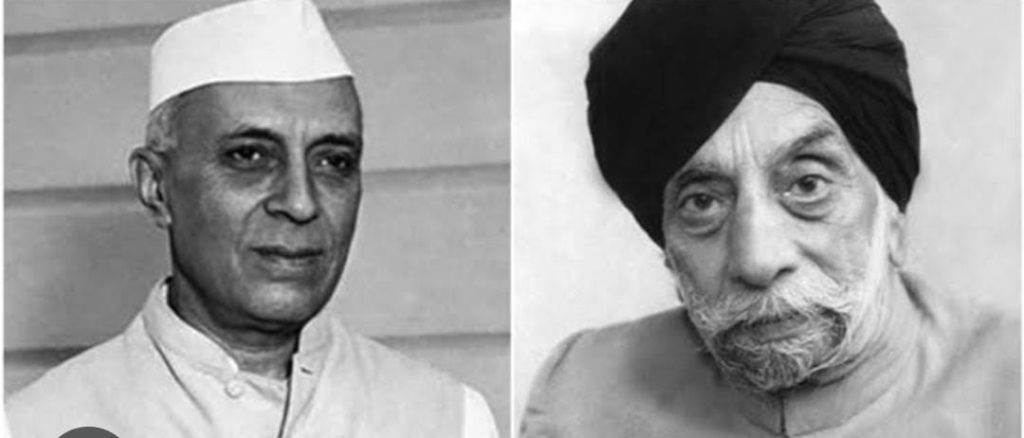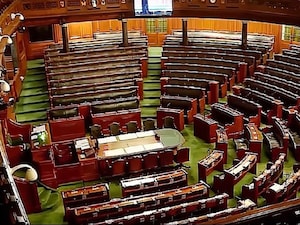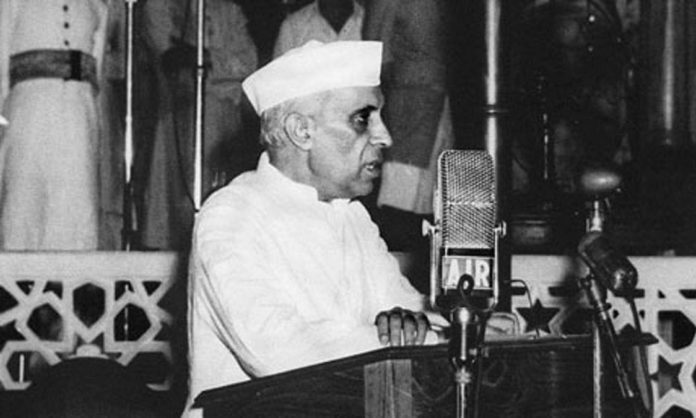The appointment of Sardar Hukam Singh as the Deputy Speaker of the Lok Sabha in 1956 is often cited as a pivotal moment in Indian parliamentary history. It is commonly portrayed as the inception of the “convention” of offering the Deputy Speaker position to a member of the opposition, demonstrating Jawaharlal Nehru’s commitment to democratic norms and bipartisanship. However, a closer examination reveals that this appointment was more a calculated political maneuver by Nehru than a gesture of bipartisanship.
The Context of PEPSU and the 1952 Elections
In 1952, the state of Punjab and East Patiala States Union (PEPSU) was the only state where the Congress party could not secure a majority in the state elections. Consequently, Gian Singh Rarewala of the Akali Dal, with the support of other parties, became the first non-Congress Chief Minister in India. This was a significant blow to Nehru and the Congress party, who were accustomed to dominating the political landscape.

The Dismissal of the Rarewala Government
In March 1953, Nehru used Article 356 of the Indian Constitution to dismiss the Rarewala government. This was the first instance of President’s Rule being imposed in India. The dismissal of the PEPSU government created a volatile political environment and highlighted the need for the Congress to strengthen its position in the region.
Negotiations with the Akali Dal
The political unrest in PEPSU led the Congress to engage in negotiations with the Akali Dal. By 1956, the General Committee of the Akali Dal decided to merge with the Congress party. However, Sardar Hukam Singh, a prominent Akali Dal leader and an MP, refused to join the Congress.
Nehru’s Strategic Offer
In a shrewd political move, Nehru offered the position of Deputy Speaker of the Lok Sabha to Sardar Hukam Singh in 1956. This appointment was not merely a gesture of bipartisanship but a strategic decision aimed at co-opting an influential opposition leader. The offer was enticing enough to bring Hukam Singh into the fold of the Congress party.

Hukam Singh’s Political Transition
Following his appointment as Deputy Speaker, Sardar Hukam Singh joined the Congress party and contested the 1957 elections as a Congress candidate. He continued as Deputy Speaker and, in 1962, was unanimously elected as the Speaker of the Lok Sabha. His political journey culminated in his appointment as the Governor of Rajasthan in 1967.
Conclusion
The narrative that Nehru established a convention of offering the Deputy Speaker position to the opposition is a simplification that overlooks the political realities of the time. The appointment of Sardar Hukam Singh was a calculated move to neutralize opposition and consolidate Congress’s power. It underscores Nehru’s political acumen and his ability to navigate the complex dynamics of Indian politics. Far from being a gesture of democratic magnanimity, it was a strategic decision to strengthen the Congress’s hold on power during a period of political instability.

